New learning that counters established or accepted knowledge is challenging. My “Global Read of the Bible” course introduces students to different interpretations by Christians from around the globe. Many global Bible readers are critical of the relationship between western colonialisms and the role of the Bible as a tool of oppression. In my first-year teaching, a very thoughtful and engaged white female student reacted emotionally, strongly dissociating herself and her ancestors from western colonialism. In another class, when I discussed how some biblical texts had silenced women, a black male student asked how a woman professor can teach and have authority over men at a seminary!
If education is to be formational and transformational, how can we deal with difficult topics related to the privilege and oppression internalized in the teacher and students? This big question is even more complicated when we consider intersectionality and the complexity of identities, but “unlearning” may open the way to approaching this question. The word “unlearn” means discarding or nullifying what we have learned when it is wrong, false, or outdated; to “forget your usual way of doing something so that you can learn a new and sometimes better way.”
Yet often, we cannot conveniently remove what we know. What we learn through oppression is inscribed in our bodies. Defining feminist work as memory work, Sara Ahmed argues:
Experiences … seem to accumulate over time, gathering like things in a bag, but the bag is your body, so that you feel like you are carrying more and more weight. The past becomes heavy….” (Sara Ahmed, Living a Feminist Life, 23)
Previously experienced or continued oppression may lead to suppressing the feeling of shame. You learn to be un- or less affected, or try to forget what should not have happened. So, the definition of “unlearn” is half right when it applies to oppression. Students, as well as the teacher, come to class as embodied beings. Some have unforgettable memories of violence and ineradicable experiences of oppression.
In her House Floor speech on July 23rd, Rep. Alexandria Ocasio-Cortez responded to Rep. Yoho’s non-apology over his vulgar insult of her on the steps of the Capitol. She had encountered that type of harassment many times—at restaurants, on the streets, and in the subway, just like other ordinary women. Yet, she stood up for other women and girls using her privilege. The power and pain of the speech lie in her remembering all those past events. Her hearers gathered their own memories and connected them into a fuller picture of women’s status and humanity.
Unlearning also applies for the privileged. We gain knowledge in interactions with the social body—societal systems and institutions that give power and opportunity to specific groups of people. So, the privileged learn and embody their privilege without recognizing that they have it. Whiteness is such a privilege. By naming the privilege and internalized superiority, we begin the unlearning process.
My conscientization came in my undergraduate “Sociology of Education” classroom. The professor told us that studying at the prestigious women’s university was a privilege, which was made possible at the expense of other women of our age. I was shocked. Surely, I hadn’t done anything wrong to them. And, my parents had to work so hard to pay for their daughter’s tuition. Yet, this powerful education has helped me to always ask what privilege(s) I have over others in different contexts—even as a racial/ethnic minority woman in the U.S.
Borrowing Ahmed’s words, I would say unlearning is a memory work. Unlearning is a work—a work “to remember what sometimes we wish would or could just recede” (Ahmed, 22). If the space is safe enough for such work to take place, it can generate tension and conflicts among students. Still, my students are encouraged and willing to listen to others and unlearn their privileges, a conscientization that they will use to benefit others. Although such discussions do not have to be personal, what we teach and learn—even seemingly abstract ideas—are grounded in people’s lives and social realities, including past and present marginalization and oppression.
The pandemic has exposed such disparities among peoples so that unlearning occurs not only in the classroom but also in public squares and virtual spaces. We see the potential of our (un)learning as collective and social. I imagine the student who responded to other people’s suffering defensively nonetheless continues her journey toward the liberation of herself and others among her communities and the masses.





